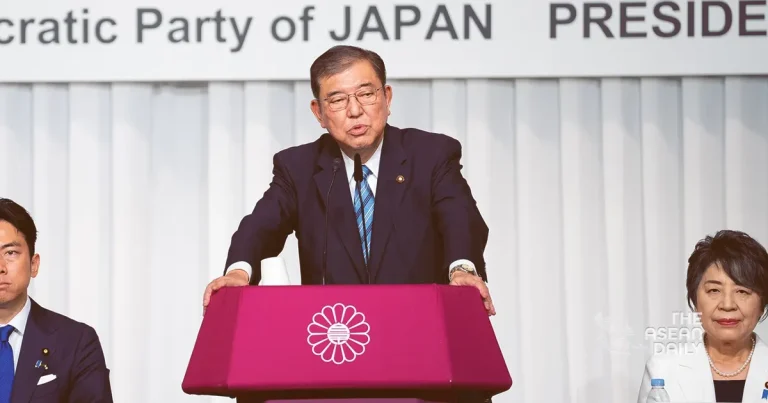28-10-2024 (TOKYO) Prime Minister Shigeru Ishiba’s ruling coalition lost its parliamentary majority in Sunday’s general election, marking the Liberal Democratic Party’s (LDP) worst electoral performance since 2009 and throwing the world’s fourth-largest economy into political uncertainty.
The LDP and its junior partner Komeito secured only 215 seats in the lower house, a dramatic decline from their previous 279-seat majority, according to national broadcaster NHK. The Constitutional Democratic Party of Japan (CDPJ) emerged as the day’s biggest winner, increasing its representation from 98 to 148 seats, as voters expressed their disapproval over recent funding scandals and mounting inflation concerns.
The stunning rebuke to the LDP, which has dominated Japanese politics throughout most of the post-war era, creates unprecedented challenges for forming a stable government. The election results could force major parties into complex power-sharing arrangements, potentially ushering in a period of political instability at a crucial juncture for Japan’s economic recovery and regional security concerns.
CDPJ leader Yoshihiko Noda declared the results “not the end, but the beginning,” signalling his party’s intention to work with other opposition groups to form an alternative government. Meanwhile, a visibly subdued Prime Minister Ishiba acknowledged the difficulty of the election, indicating he would await final results before considering coalition options.
The electoral upset has sent immediate ripples through financial markets, with the yen falling to a three-month low. Analysts predict Japanese stocks will face downward pressure as investors grapple with the new political landscape. “The uncertainty over administrative continuity will likely trigger a sell-off, particularly among foreign investors,” noted Saisuke Sakai, senior economist at Mizuho Research and Technologies.
Smaller parties have suddenly found themselves in powerful positions as potential kingmakers. The Democratic Party for the People (DPP) and Japan Innovation Party, winning 28 and 38 seats respectively, could prove crucial in forming a workable government. However, their policy positions, particularly regarding sales tax and political donation rules, present significant challenges for potential coalition building.
The election outcome could also complicate the Bank of Japan’s monetary policy plans. With potential coalition partners expressing resistance to interest rate increases, the central bank’s strategy to gradually move away from its long-standing easy money policy may face new obstacles.




